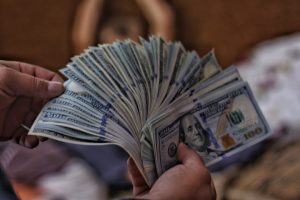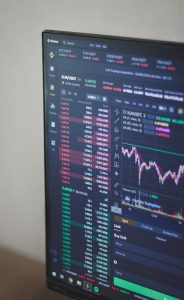Slippage is a common phenomenon in the forex market that traders experience. It refers to the difference between the expected price of a trade and the actual price at which it is executed. Slippage can occur in both directions, meaning that a trader can either gain or lose money due to the difference in the price. In this article, we will discuss the various factors that cause slippage in forex.
1. Market volatility
The forex market is known for its volatility, which is the degree of price variation over time. When the market experiences high volatility, it can lead to slippage. This is because the price of a currency pair can change rapidly, making it difficult for traders to execute their trades at their desired price. During times of heightened volatility, traders may experience a delay in the execution of their trades, leading to slippage.
2. Liquidity
Liquidity refers to the ease with which traders can buy or sell a financial asset. In the forex market, liquidity is essential because it determines the price at which trades are executed. When there is low liquidity in the market, traders may experience slippage because there are not enough buyers or sellers to match their orders. This can lead to delays in the execution of trades, causing slippage.
3. Order size
The size of the order also plays a crucial role in causing slippage. When a trader places a large order, it can cause the price of the currency pair to move in the opposite direction. This is because large orders can cause a temporary imbalance in the supply and demand of the currency pair. As a result, traders may experience slippage when executing large orders.
4. Broker latency
Broker latency refers to the delay between the time a trader places an order and the time it is executed by the broker. This delay can be caused by various factors, such as slow internet connection, technical issues with the broker’s platform, or the distance between the trader and the broker’s server. When there is a delay in the execution of trades, it can lead to slippage.
5. News events
News events can cause significant volatility in the forex market, leading to slippage. When there is a significant news event, such as an economic report or a central bank announcement, traders may rush to execute their trades, leading to a sudden increase in demand for the currency pair. This can cause the price of the currency pair to move rapidly, making it difficult for traders to execute their trades at their desired price.
In conclusion, slippage is a common phenomenon in the forex market that traders experience. It can be caused by various factors, such as market volatility, liquidity, order size, broker latency, and news events. To minimize the risk of slippage, traders should use stop-loss orders to limit their losses in case of adverse price movements. They should also choose a reliable broker with a fast and stable platform to avoid latency issues. By understanding the causes of slippage, traders can better manage their risk and improve their trading performance.






